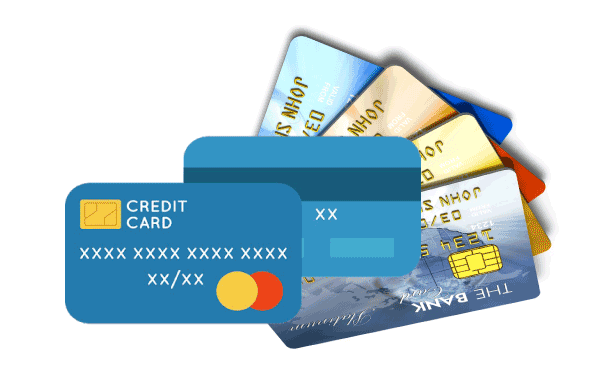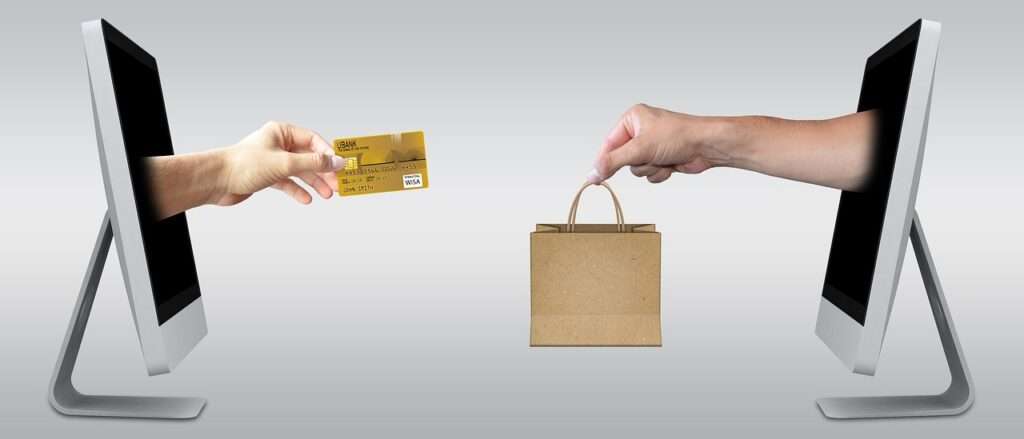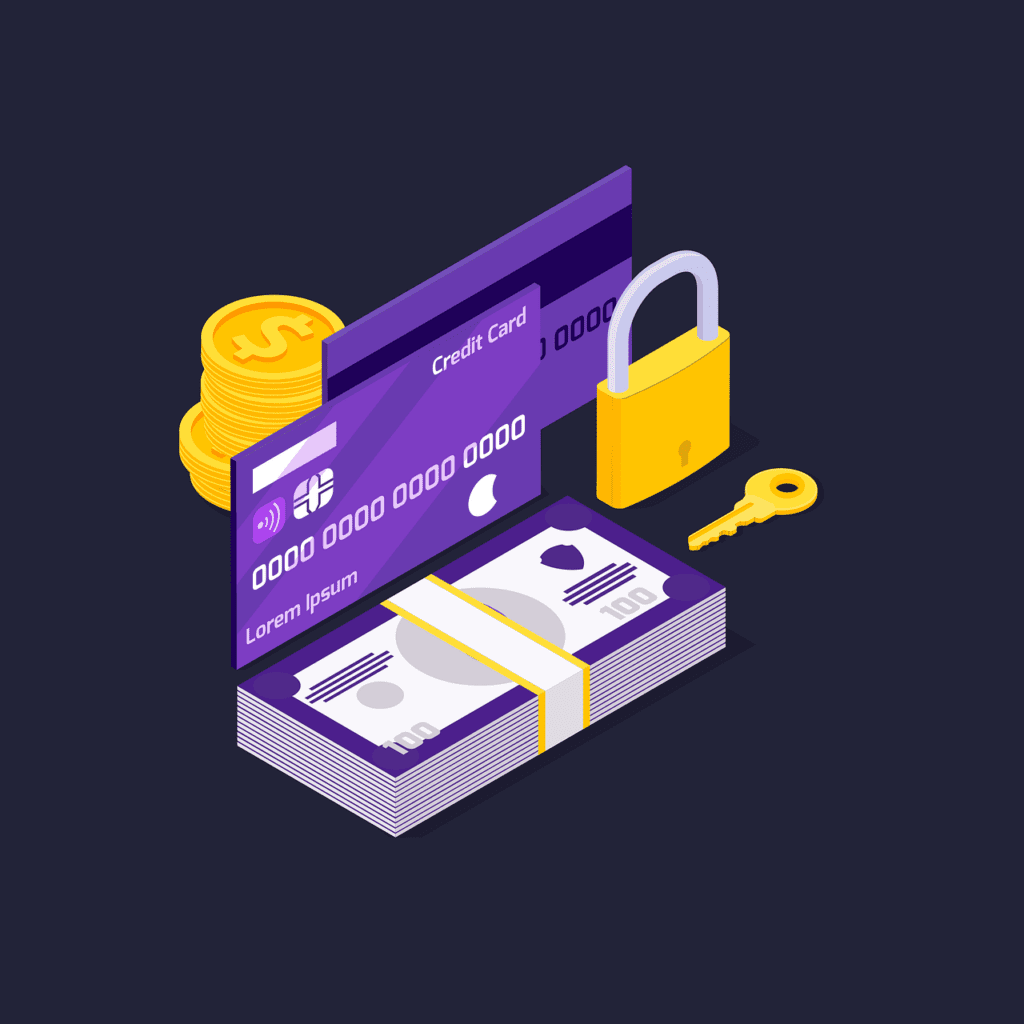Table of Contents
- CR Full Form: What is a Credit Card?
- CR Full Form: How Credit Card Works
- CR Full Form: Types of Credit Card
- Key Features of a Credit Card
- Advantages of Using Credit Cards
- CR Full Form: Application Process
- CR Full Form: Credit Limits & Interest Rates
- Credit Card Security and Fraud Prevention
- CR Full Form: Conclusion
- CR Full Form: FAQs
CR Full Form: What is a Credit Card?



A credit card is a financial tool that enables people to loan money from a financial institution up to a specific pre-approved limit and use it to make purchases. A bank, credit union, or other financial company issues this plastic card. These are a credit card’s key features:
- Credit Limit: Every credit card has a credit limit, which is the most money the cardholder is permitted to borrow. The issuing institution establishes this limit based upon the borrower’s creditworthiness, income, and other factors.
- Loans and Repayments: A person essentially borrows money from the credit card company when they use one to make a transaction. The cardholder is required to pay back this borrowed sum within a set period of time, frequently once per month. If the whole amount is not paid, the balance will carry over to the following billing period & will keep accruing interest.
- Interest rates: Interest will be added to the outstanding balance if the cardholder doesn’t pay the total balance by the due date. Since credit card interest rates are sometimes high, it’s best to pay off the entire sum each month to prevent running up a sizable debt.
CR Full Form: How Credit Card Works
Here is how credit cards work:
- When you make a purchase with your credit card, the merchant swipes your card through a reader. This reader sends the information on your card, such as your name, account number, and expiration date, to the credit card issuer.
- The credit card issuer verifies your information and authorizes the purchase. If the purchase is authorized, the merchant is given permission to charge your account.



- The credit card issuer then sends a bill to you for the amount of the purchase. You have a grace period, usually 21 days, to pay the bill in full without incurring interest charges.
- If you do not pay the bill in full by the due date, you will be charged interest on the outstanding balance. The interest rate on credit cards is typically high, so it is important to pay your bill in full each month to avoid paying too much in interest.
CR Full Form: Types of Credit Card
| Card Type | Features |
|---|---|
| Cash back credit cards | Earn cash back rewards for every dollar you spend. |
| Rewards credit cards | Earn points or miles that can be redeemed for merchandise, travel, or other rewards. |
| Travel credit cards | Earn points or miles that can be redeemed for travel expenses, such as flights, hotels, and car rentals. |
| Balance transfer credit cards | Offer a 0% introductory APR on balance transfers for a limited time. |
| Student credit cards | Designed for students with limited credit history. |
| Secured credit cards | Require a security deposit, which is used as collateral in case you default on your payments. |
| Co-branded credit cards | Issued in partnership with a retailer or other company, and offer rewards that are specific to that company. |
| Credit builder cards | Help you build your credit history by reporting your payments to the credit bureaus. |
Key Features of a Credit Card
1. Credit Limit
The credit score restrict is the most quantity you may borrow for your card.
It is decided through the cardboard provider primarily based totally for your creditworthiness and income.
2. Interest Rate (APR)
The Annual Percentage Rate (APR) is the hobby price charged on any unpaid stability.
Higher APRs observe to balances carried over from month to month, so it`s vital to repay your stability regularly.
3. Reward Programs
Many credit score playing cards provide praise points, cashback, or journey miles for each buy made.
These rewards may be redeemed for diverse benefits, along with merchandise, discounts, or journey.
4. Grace Period
The grace length is the time among the stop of a billing cycle and whilst hobby is charged.
If you repay your stability in complete at some stage in this length, you may keep away from paying hobby.
5. Annual Fees
Some credit score playing cards fee an annual rate for the privilege of the use of the cardboard.
Fees range relying on the cardboard`s functions, along with rewards applications or top rate services.
6. Cash Advance Facility
A coins enhance permits you to withdraw coins the use of your credit score card.
Cash advances normally include better prices and hobby prices than everyday purchases.
7. Security Features
Credit playing cards are geared up with superior protection functions like EMV chips and fraud detection
systems.
These assist defend towards unauthorized transactions and identification theft.
8. Balance Transfer Options
Many credit score playing cards let you switch balances from different playing cards, frequently at decrease hobby prices.
Balance transfers assist you to consolidate debt and manipulate bills greater effectively.
Advantages of Using Credit Cards
1. Convenience and Ease of Use
Credit playing cards make on-line and in-keep purchases rapid and simple.
They get rid of the want to hold coins and are broadly regularly occurring globally.
2. Building a Credit History
Responsible credit score card use can assist construct and enhance your credit score score.
A suitable credit score records opens doorways to higher mortgage phrases and hobby rates.
3. Reward Programs and Cashback
Many credit score playing cards provide rewards, points, or cashback on purchases.
These rewards may be redeemed for journey, shopping, or assertion credits.
4. Fraud Protection and Security
Credit playing cards provide robust fraud safety, with 0 legal responsibility for unauthorized charges.
In case of fraud, cardholders can file and remedy problems quick with out on the spot economic loss.
5. Emergency Financial Assistance
Credit playing cards offer get entry to to emergency price range whilst coins is unavailable.
This may be in particular useful at some stage in sudden conditions like clinical emergencies.
6. Purchase Protection and Warranties
Many credit score playing cards provide buy safety, masking harm or robbery of items.
Extended warranties and charge safety on purchases are regularly included.
7. Flexible Payment Options
Credit playing cards provide flexibility in payment, permitting you to pay in complete or over time.
They offer the choice to manipulate coins waft through paying minimal quantities or making use of stability transfers.
8. Travel Benefits and Perks
Certain credit score playing cards offer journey-associated perks which includes airport front room get entry to and journey insurance.
These advantages make visiting extra snug and steady for cardholders.
CR Full Form: Application Process



Here are the steps involved in the credit card application process:
- Choose a credit card: There are many different types of credit cards available, so it is important to choose one that is right for you. Consider your spending habits, financial goals, and credit history when making your decision.
- Gather your information: You will need to provide some personal information when you apply for a credit card, such as your name, address, Social Security number, and income. You may also need to provide information about your employment and credit history.
- Complete the application: Once you have chosen a credit card and gathered your information, you can complete the application. The application process is usually online, but you can also apply by mail or in person.
- Wait for approval: The credit card issuer will review your application and decide whether to approve it. This process can take a few days or weeks.
- Receive your credit card: If your application is approved, you will receive your credit card in the mail.
CR Full Form: Credit Limits & Interest Rates
- Credit limit is the maximum amount of money you can borrow on your credit card. It is important to set a budget and only use your credit card for purchases that you can afford to pay off in full each month. If you exceed your credit limit, you may be charged a penalty fee.
- Interest rate is the percentage of the outstanding balance that you are charged each year for borrowing money from the credit card issuer. The interest rate is usually expressed as an annual percentage rate (APR). The higher the APR, the more you will pay in interest over time.
CR Full Form: Credit Card Security and Fraud Prevention
1. Use Strong Passwords and PINs
Always create complicated passwords and PINs on your credit score card money owed.
Avoid the use of effortlessly guessable statistics like birthdates or names.
Regularly replace your passwords and PINs for added safety.
2. Enable Two-Factor Authentication (2FA)
Set up 2FA for extra safety while getting access to your credit score card money owed online.
This guarantees that even in case your password is compromised, an additional layer of verification is required.
2FA may be via textual content messages, email, or authentication apps.
3. Monitor Your Transactions Regularly
Check your credit score card statements regularly to stumble on unauthorized transactions.
Many credit score card agencies offer real-time signals for spending activities.
Early detection permits you to document fraud speedy and decrease losses.
4. Use Secure Websites for Online Transactions
Always test for “https” and a padlock image withinside the browser earlier than coming into fee information.
Ensure the internet site is valid through verifying its safety features.
Avoid making purchases on public or unsecured Wi-Fi networks.
5. Activate Card Locking Features
Many credit score card carriers provide the capacity to fasten your card if it`s misplaced or stolen.
Locking your card prevents unauthorized fees till the problem is resolved.
Use this selection right away in case you suspect any fraud or loss.
6. Be Cautious with Card Information Sharing
Never proportion your credit score card information over telecellsmartphone calls or emails except you’re certain of the recipient`s identity.
Avoid storing card information on web sites that don’t have steady fee methods.
Only offer statistics to relied on traders or structures with a confirmed song record.
7. Activate Fraud Detection Alerts
Sign up for automated fraud signals out of your credit score card provider.
These signals notify you of uncommon spending or high-price transactions.
Immediate reaction to those signals can save you in addition unauthorized activity.
8. Report Lost or Stolen Cards Immediately
Contact your credit score card provider right away in case your card is misplaced or stolen.
Most carriers have 24/7 customer support that will help you block your card and save you in addition fees.
Quickly reporting can assist keep away from legal responsibility for fraudulent transactions.
CR Full Form: Conclusion
CR Full Form: FAQs
A credit card works by providing the user with a credit limit. The cardholder can make purchases up to this limit and is required to make minimum payments. If the balance is not fully paid by the due date, interest is charged on the outstanding amount.
A credit limit is the maximum amount a credit cardholder can borrow from the credit card issuer. It is determined based on factors like credit history, income, and the issuer’s policies.
The credit card interest rate (APR or Annual Percentage Rate) is the interest charged on outstanding balances if not paid in full by the due date. Rates vary depending on the card issuer and the type of card.






